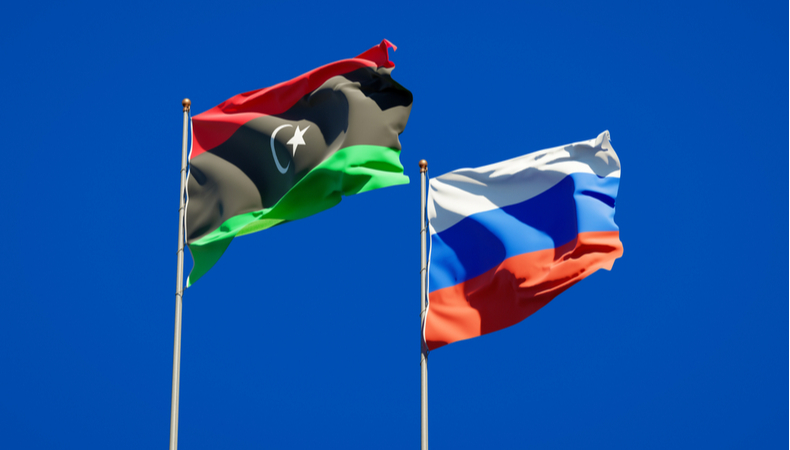What the hell is Russia doing in Libya and what is the point of consultations with Libyan politicians?

Russian Deputy Foreign Minister Mikhail Bogdanov held numerous meetings with several Libyan politicians, including members of the House of Representatives and tribal figures, in conjunction with ongoing UN-sponsored rounds of dialogue. Talks in Moscow raise numerous questions about these weekly meetings. The Kremlin had previously announced that it would host an intra-Libyan forum that would bring together over 100 personalities.
Nothing was known more about the meeting after the UN envoy Stephanie Williams went to Moscow before inaugurating the Libyan Political Dialogue Forum in Tunis in November. Many believe that Williams has asked Moscow to suspend alternative routes. She often reiterated, during the dialogue sessions in Tunisia, that there was no alternative to the UN-facilitated LPDF. The Libyans have already shown they are very good at spoiling any peace initiative, hiding behind their foreign supporters. Last Saturday, the mercenaries and foreign forces were supposed to leave Libyan territory, but Moscow has remained current with its policy of lies. The Kremlin has always denied the presence of mercenaries of the Wagner group, so it could not retract something it claims is not there. Yet satellite images have shown the construction of trenches in the Sirte and Jufra area, the presence of fighter jets, and so on.
These consultations began with politicians and parliamentarians on 4 December, when Bogdanov met with Moin el-Kikhia, given as the favorite to the post of Prime Minister in the next executive. On January 15, he received representatives of what the Russian media called “the movement of Saif al-Islam Gaddafi”, Miftah al-Werfalli, and Omar Abu Shreda. On January 16, the Russian official received the President of the Parliament’s representative, Abdel Basset Al-Badri. And less than a week after this meeting, precisely on Jan. 22, Bogdanov had talks with another member of the House of Representatives, Fathallah Al-Saeiti.
Only yesterday, Russian diplomacy discussed the latest developments in Libya with another deputy, Abdel Nasser bin Nafi. Also, there have been consultations with advisors from the Tripoli presidential council, but nothing changed on the ground. Syrian mercenaries belonging to pro-Bashar al-Assad factions and mercenaries belonging to the Wagner group along with Russian officers, remain deployed alongside Khalifa Haftar’s Libyan National Army (LNA). So what is the purpose of these consultations? Provide an alternative peace process? That would mean that the efforts of the United Nations have failed.
Russia stated that the common denominator in all meetings, which took place over two months, is the exchange of views on the current situation, in and around Libya. During a detailed conversation “in the framework of effective coordination of efforts to promote stable dialogue among Libyans, with the participation of all influential political forces in the country based on the provisions of Security Council Resolution 2510. In reality, Russia appears to be conducting an effort parallel to that carried out by the international community. In this regard, the Kremlin has hinted that a global Libyan dialogue also involving the representatives of the former regime is necessary. As a condition for the success of any solution to the Libyan crisis. But even this thesis seems unlikely. Russia, as already done by other countries in the past, is using supporters of the previous regime. The majority in the Sirte area it is occupying.
Bogdanov, speaking to journalists on Monday, said that Russia is acting in Libya with complete transparency, indicating that his country has contacts with all Libyan forces, explaining: “We have contacts with everyone, both with the West and with the east of the country. With the Government of National Accord, with Parliament, with the Libyan National Army, and the supporters of the previous regime.” To talk about transparency, Bogdanov should first comment on the satellite images released by the US intelligence. It should explain to the Libyans, who asked the withdraw of all foreign forces, why mercenaries still on their territory. To date, rather than promoting dialogue, it seems that Russian policy in Libya aims more to divide the country geographically, thanks also to the ambiguous collaboration with Ankara, which, in the same way, has not yet withdrawn thousands of Syrian fighters from the western region of the country.




